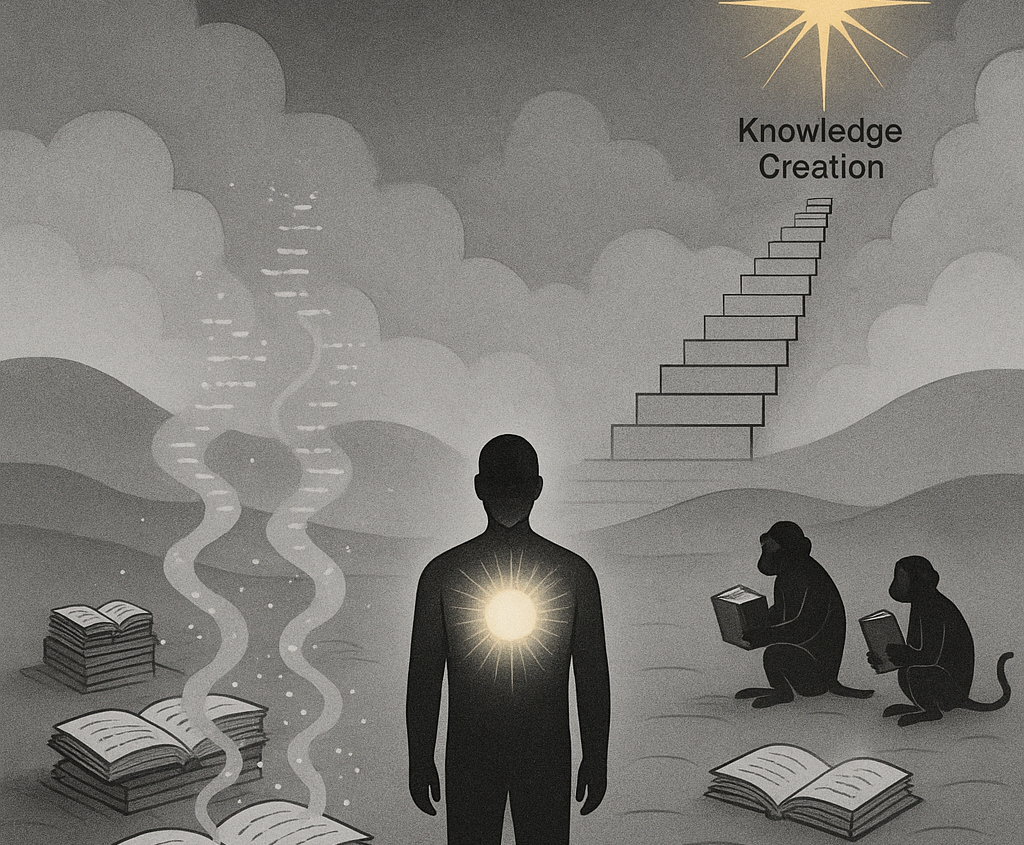From Borrowed Knowledge to Personal Insights

I’ve been writing for years now. Reading, for even longer. When I look back at those early days, it’s hard to fully capture the feeling I had about writing. My first notes weren’t really mine at all—they were just highlights from books, copied down without much thought of my own. Even when I did have thoughts, I rarely prioritized them.
At the time, I believed the words of authors and “geniuses” far outweighed anything I could come up with. My entire note-taking system was built on the hope that one day, these collected fragments would spark a miracle breakthrough. And if I’m honest, part of it was just vanity. Knowing more, reading more—it felt like a badge of honor. The number of books you read became bragging rights. In my local language, we used to joke about people who “gyan pelna”—lecturing others with their stored-up knowledge.
The truth is, no one likes preachers. We roll our eyes at these “gyan pelo geniuses.” Yet the seed of that same behavior exists in all of us. Maybe it’s our way of claiming moral superiority, of signaling wisdom and securing status in the social hierarchy. Some flaunt knowledge, others appearance. It’s basic human nature: the climb for status never stops. Monkeys do it too—though, they don’t read books.
In today’s world of limitless access, we can all build castles out of borrowed knowledge. We chase hidden gems in obscure books, hoping to find something no one else has read. We devour bestsellers so we’re not left behind, afraid that missing a book might leave us at a disadvantage. Famous books get more famous because everyone wants to be “in the know.” Call it confirmation bias, call it a rat race—either way, it’s human instinct.
But borrowed knowledge is still just that—borrowed. Whether rare or popular, it isn’t ours until we make it so. I once saw an ad on Instagram for an app that teaches math, claiming math makes you look “cool.” The ad was ridiculous, but also revealing. It was targeting something real: our deep, unshakable drive to climb higher in the social ladder.
The irony is that knowledge itself isn’t some prize that fell from the sky. It was created—by humans. Monkeys don’t create knowledge. We do. Which means the real value was never in the highlights I copied, but in the meaning I could have drawn from them. What mattered was my interpretation, my conclusions, my judgment.
That’s the line between memorization and understanding. Value isn’t in storing someone else’s words but in crafting your own explanations—however imperfect. That act of forming opinions is the act of creating new knowledge. And every human is capable of it, regardless of where they stand in the hierarchy.
As David Deutsch put it: “To a koala bear, whose ecological niche depends on eucalyptus leaves, eucalyptus is significant; to the knowledge-wielding ape, Homo sapiens, knowledge is significant.”
We are not koalas. We are not monkeys. We are human beings. And our true power lies not in hoarding knowledge, but in creating it.